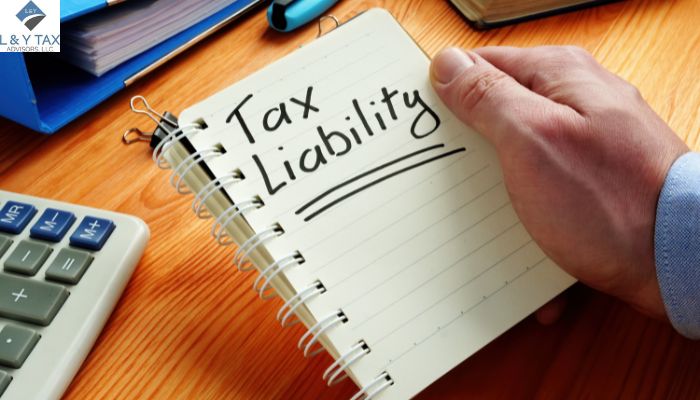
Do Strippers Pay Taxes?
Many people have long been fascinated yet curious about the world of adult entertainment. Whether you’re talking about exotic performers at a party or artists in the online adult industry, one common question arises, ‘Do strippers pay taxes?’
The quickest answer to this question is ‘yes.’ Like other working professionals, strippers also pay taxes on their monthly earnings. Let’s explore how taxation works in this particular profession to clarify the myths surrounding this often misunderstood topic.
Understanding Tax Liabilities
Do strippers have to pay taxes? Like other professional workers, strippers are required to pay federal, state, and municipal taxes on their earnings. It includes income tax, Social Security tax, and Medicare tax. Some discussions or rumors that strippers may altogether avoid paying taxes are simply a myth. Tax evasion can result in harsh legal penalties such as fines and even incarceration.
Independent Contractor vs. Employee
One of the most essential taxation components for strippers is their job status. The classification of a stripper as an employee or an independent contractor can substantially impact the answer to the question, ‘Do strippers pay taxes?’
- Employee Status
Suppose the club or institution where a stripper works classifies them as employees. In that case, the club is liable for withholding income tax, Social Security tax, and Medicare tax from the stripper’s earnings. The club must also provide the stripper with a W-2 form summarising their annual earnings. The stripper’s tax duties are the same as those of any other employee in this circumstance.
- Independent Contractor Status
A large number of strippers work as independent contractors. In this case, they are responsible for keeping track of their income and paying their taxes. The club or facility issues a 1099-MISC form to strippers working as independent contractors, which reports their earnings. This implies that they must make estimated tax payments throughout the year and adhere to tax legislation.
Cash Tip Reporting
Cash tips account for a substantial portion of a stripper’s earnings, and it’s critical to handle the problem of reporting these tips for tax purposes. Some people believe that monetary tips may be ignored. However, doing so is both immoral and unlawful. All tips, whether collected in cash or other forms, are taxable income. Strippers are legally compelled to disclose their tips and pay taxes on them. Failure to do so can have undesirable consequences.

Deductible Expenses
Strippers who are categorized as independent contractors, like any other self-employed persons, can deduct certain business-related costs when computing their taxable income. These tax deductions help them minimize their overall tax obligation. Some other expected deductible costs for strippers may include:
- Costumes and stage clothes
- Expenses for makeup and grooming
- Fees paid to the club or establishment for travel to and from work
- Advertising and promotion expenses
- Premiums for health insurance (if not supplied by the club)
To ensure that these costs are correctly claimed, keep precise records of them and speak with a tax specialist.
The Legal Consequences of Tax Evasion
Tax evasion is a serious violation. Anyone who attempts to escape taxes may face harsh penalties – irrespective of their profession. If a stripper is detected dodging taxes, they may face the following punishments:
- Penalties and fines
- Lawsuits in civil court
- Interest on unpaid taxes
- Criminal accusations, including the possibility of imprisonment
Individuals operating in the adult entertainment sector, or any job, must understand their tax requirements and meet them rigorously to avoid legal ramifications.
How do Strippers File Taxes?
Strippers, like any other self-employed individuals, are required to file taxes in granting with the laws of their rule. Typically classified as independent contractors, strippers are responsible for reporting their earnings to tax authorities. They can deduct legitimate business expenses related to their profession, such as costumes, travel, and marketing. Strippers must keep detailed records of their income and expenses to complete their tax returns accurately. Some strippers may receive cash payments, and they need to maintain accurate records of all earnings, as failure to report income can lead to legal consequences. Consulting with a tax professional can be beneficial to ensure compliance with tax laws and maximize eligible deductions for those working in the adult entertainment industry.
The issue, “Do strippers pay taxes?” is an issue that’s common and is often followed by misperceptions regarding the legality and regulations of the entertainment industry. People often believe that since strippers make money from cash, their earnings are without being reported. This misconception leads to more beliefs about tax evasion, as well as the business practices that are prevalent in the industry.
Agitation
Imagine the everyday life of a prostitute: having to balance several shifts as well as manage income that fluctuates as well and deal with negative social stigma. Then, consider the difficulty of managing taxes. In contrast to typical 9-to-5 positions, which have tax deductions taken out of paychecks automatically, Strippers are required to track and declare their earnings and earnings, sometimes without the assistance of advice on finances or the employer’s evidence. The lack of direction could lead to errors or unintentional violations or, in the end, serious results for the IRS, including fines and legal issues and actions.
An investigation into a popular strip club in Nevada discovered that 60% of the 50 dancers interviewed reported their earnings precisely. A further 40% were not properly reported or didn’t declare taxes at all due to ignorance or confusion. This highlights the importance of improving knowledge of financial matters within the business, but it also highlights the risk of non-compliance.
Solution
So, do strippers pay taxes? Yes, they’re legally bound to file their entire earnings as self-employed. This is how they can handle this procedure efficaciously:
- Keep detailed records: Strippers should maintain an account of each day’s earnings, including tips in cash and payments made through online platforms.
- Know Tax deductions: You can deduct the costs that are related to their jobs, including outfits, makeup, travelling as well as gym memberships. This could significantly reduce their tax-deductible earnings.
- Engaging in a professional Consultation with a tax expert who knows the special elements of the adult entertainment business can ensure the accuracy of your filing and help you comply.
L&Y Tax Advisor emphasises the importance of financial literacy to all self-employed people, including strippers. If they are aware of their tax obligations and seek well-qualified assistance, strippers will be able to avoid the dangers of not complying and better manage their money efficaciously.
Seek Professional Help: Do Strippers Pay Taxes?
Strippers and others in the adult entertainment sector should obtain expert tax guidance due to the specific tax conditions they may encounter. Tax specialists who have worked with individuals in this business may give helpful advice on how to record income correctly, claim deductions, and comply with all tax rules.
The Value of Financial Planning
Strippers and others in the adult entertainment sector should focus on financial preparation and meeting their tax requirements. It involves saving for retirement, controlling spending, and maintaining long-term financial security. Establishing a retirement savings plan, such as an Individual Retirement Account (IRA), can be a sensible financial decision.
How much do pole dancers earn?
Pole dancing can provide financial rewards. It is both a form of fitness and a performance art. The earnings of pole dancers can vary greatly depending on location, skill level, and employment type. This is an overview of what pole dancers earn.
Factors Affecting Pole Dancers’ Earnings:
- Experience and Skill level Professional dancers with unique or advanced routines, skillsets, etc., can earn more.
- Location: In major cities and high-end nightclubs, dancers earn more than in smaller towns.
- Work Type Earnings for Performers in Clubs, Private Events, and Competitions: Different earnings are earned by performers at clubs, competitions, or private events.
The Average Annual Income is:
- Pole Dancers On average, pole dancing earns between $50 and $200 per night. Tips are a significant factor in their earnings.
- Private events: Prices can vary from 150 to 500 dollars per event, depending on venue and duration.
- Sponsorships and Competitions High-level performers can earn $1000+ by competing, attending workshops or signing brand agreements.
Conclusion
To summarize the discussion on ‘Do strippers pay taxes?’, it is concluded that the notion that strippers do not pay taxes is incorrect. The taxation rules and regulations of a country are the same for everyone, regardless of the industry in which you’re working. However, slight differences arise when you are categorized as an employee of an organization or working as an independent contractor. Failure to comply with the state’s codes makes you vulnerable to hefty penalties. Seek professional income tax services when necessary and participate in appropriate financial planning for sustained career growth.
FAQs:
1. Are strippers required to pay taxes on their income?
Yes. Like any worker, strippers must report all income—including cash tips, wages, and performance fees—to the IRS. Failure to do so can result in penalties or legal consequences.
2. How do strippers report cash tips and earnings?
As self-employed income (if independent): Many strippers are independent contractors, meaning they file a Schedule C (Form 1040) to report earnings and deduct business expenses (costumes, travel, club fees, etc.).
As an employee (if W-2): Some clubs classify dancers as employees, withholding taxes and providing a W-2. However, cash tips must still be reported separately.
3. What tax deductions can strippers claim?
Common deductible expenses include:
-
-
Work-related attire (costumes, shoes, makeup).
-
Travel (between clubs, conventions, or performances).
-
Agent/manager fees (if applicable).
-
Health insurance (if self-employed).
-
4. What happens if a stripper doesn’t report cash income?
The IRS can impose audits, fines, or criminal charges for tax evasion. Clubs may also face scrutiny if they fail to report payments properly.
5. Do strippers pay more taxes than traditional employees?
Often, yes. Independent contractors pay self-employment tax (15.3%) on top of income tax, but they can offset this with deductions. Employees (W-2) avoid self-employment tax but have fewer write-offs.
Read More:


